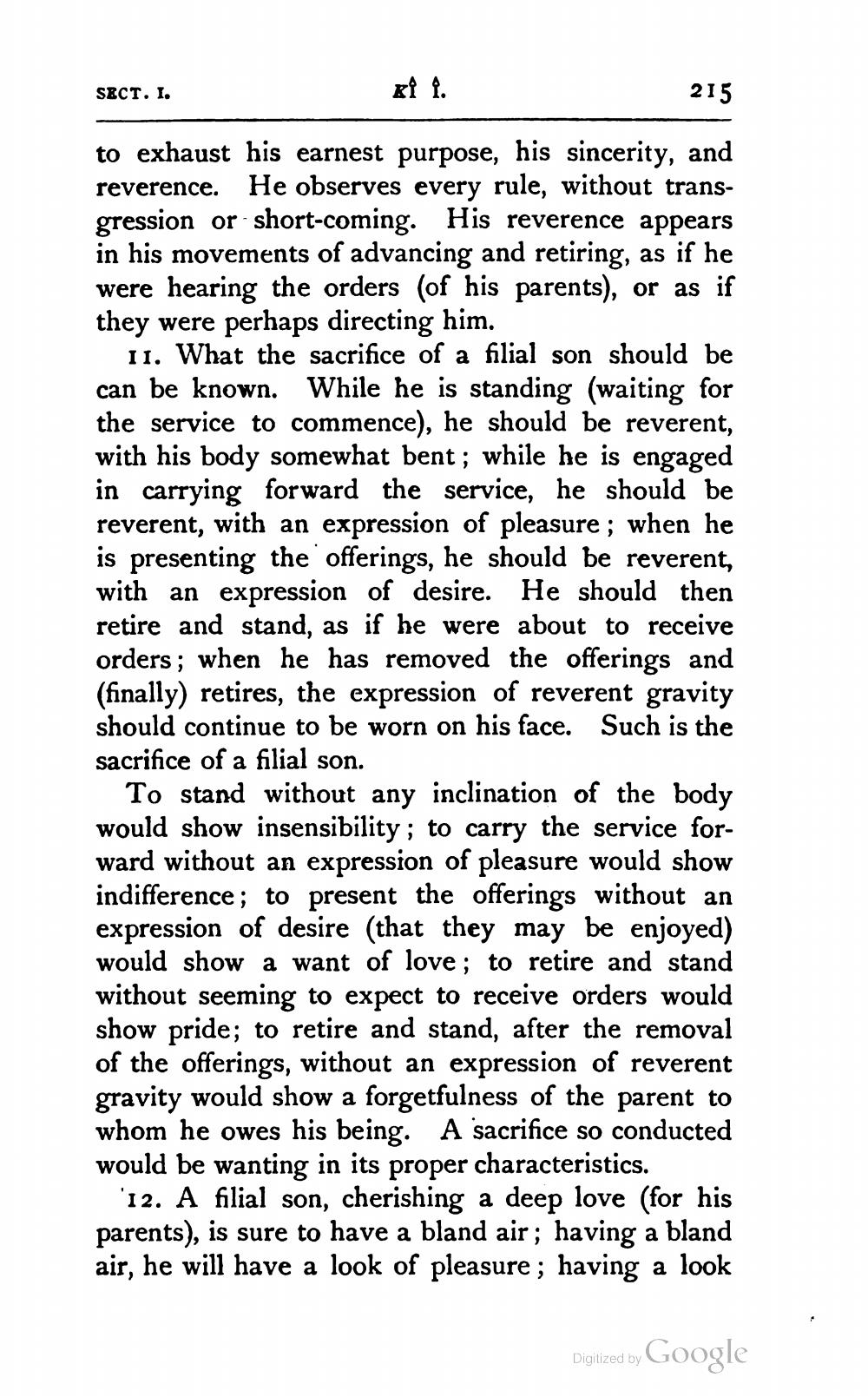________________
SECT. I.
RP 1.
215
to exhaust his earnest purpose, his sincerity, and reverence. He observes every rule, without transgression or short-coming. His reverence appears in his movements of advancing and retiring, as if he were hearing the orders (of his parents), or as if they were perhaps directing him.
11. What the sacrifice of a filial son should be can be known. While he is standing (waiting for the service to commence), he should be reverent, with his body somewhat bent; while he is engaged in carrying forward the service, he should be reverent, with an expression of pleasure; when he is presenting the offerings, he should be reverent, with an expression of desire. He should then retire and stand, as if he were about to receive orders; when he has removed the offerings and (finally) retires, the expression of reverent gravity should continue to be worn on his face. Such is the sacrifice of a filial son.
To stand without any inclination of the body would show insensibility; to carry the service forward without an expression of pleasure would show indifference; to present the offerings without an expression of desire (that they may be enjoyed) would show a want of love; to retire and stand without seeming to expect to receive orders would show pride; to retire and stand, after the removal of the offerings, without an expression of reverent gravity would show a forgetfulness of the parent to whom he owes his being. A sacrifice so conducted would be wanting in its proper characteristics.
'12. A filial son, cherishing a deep love (for his parents), is sure to have a bland air; having a bland air, he will have a look of pleasure; having a look
Digitized by Google




